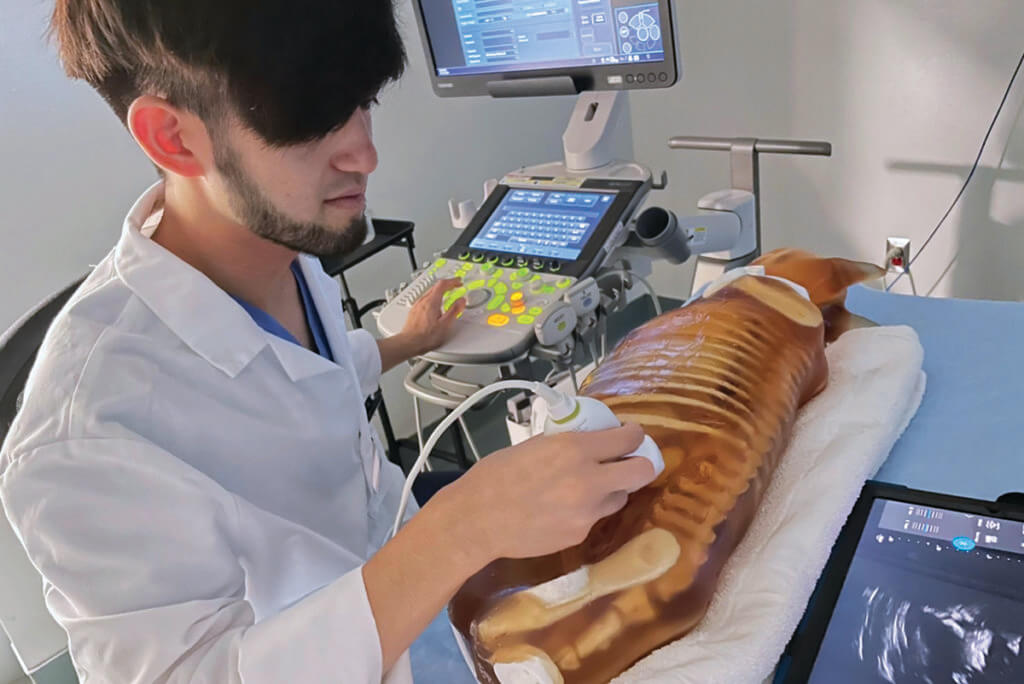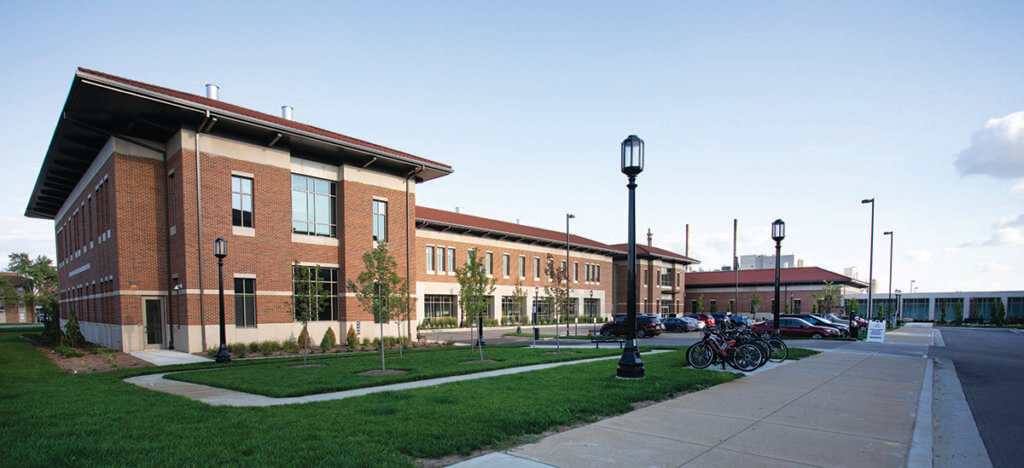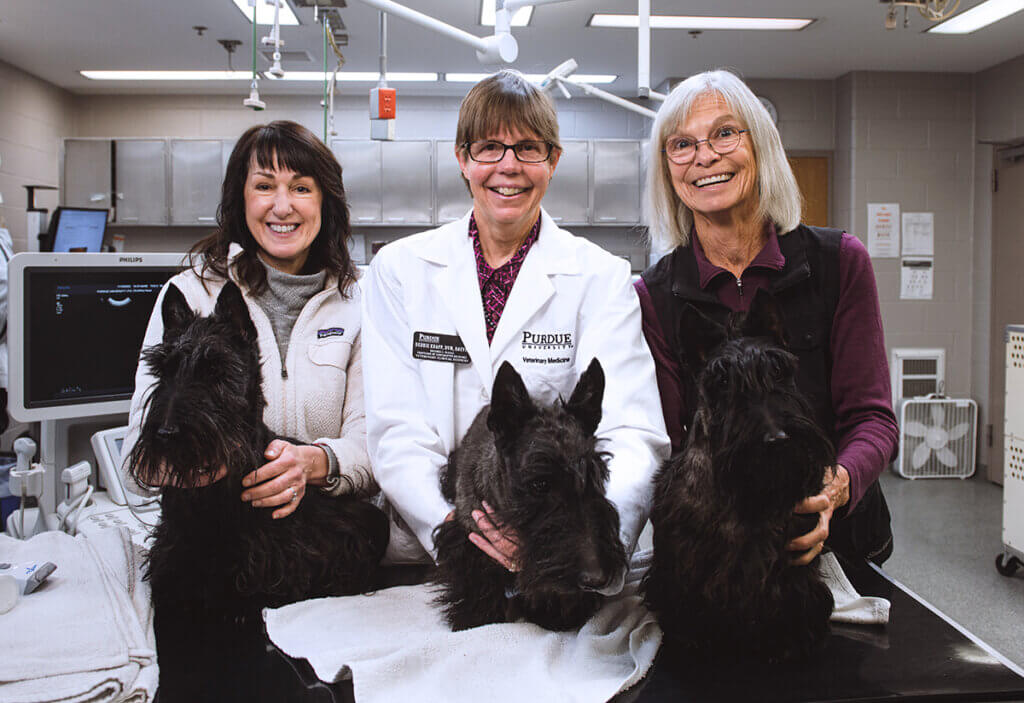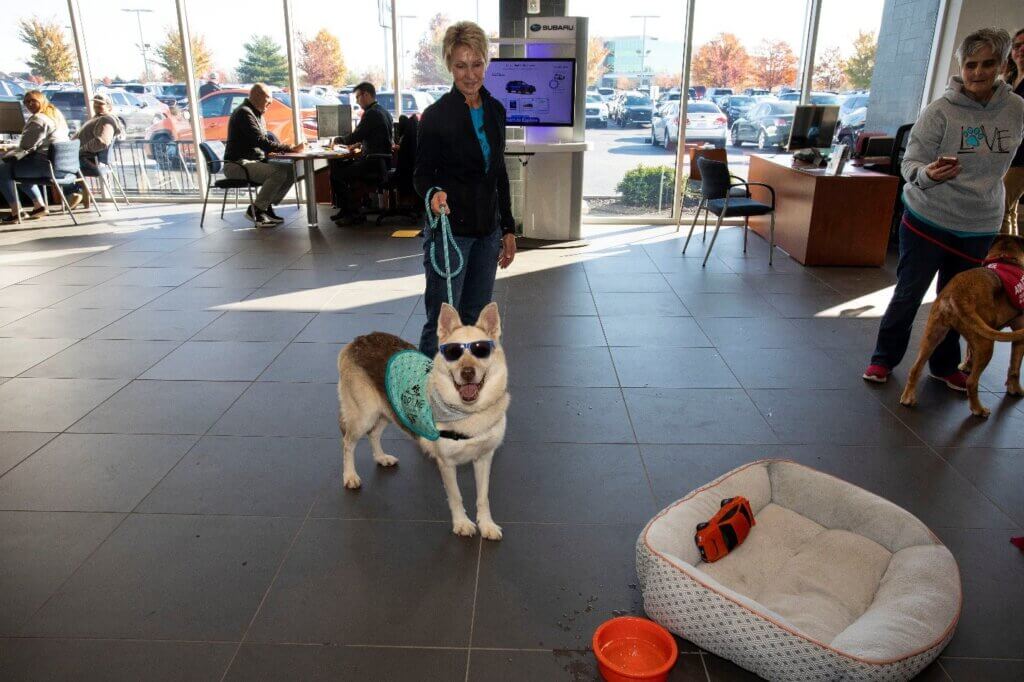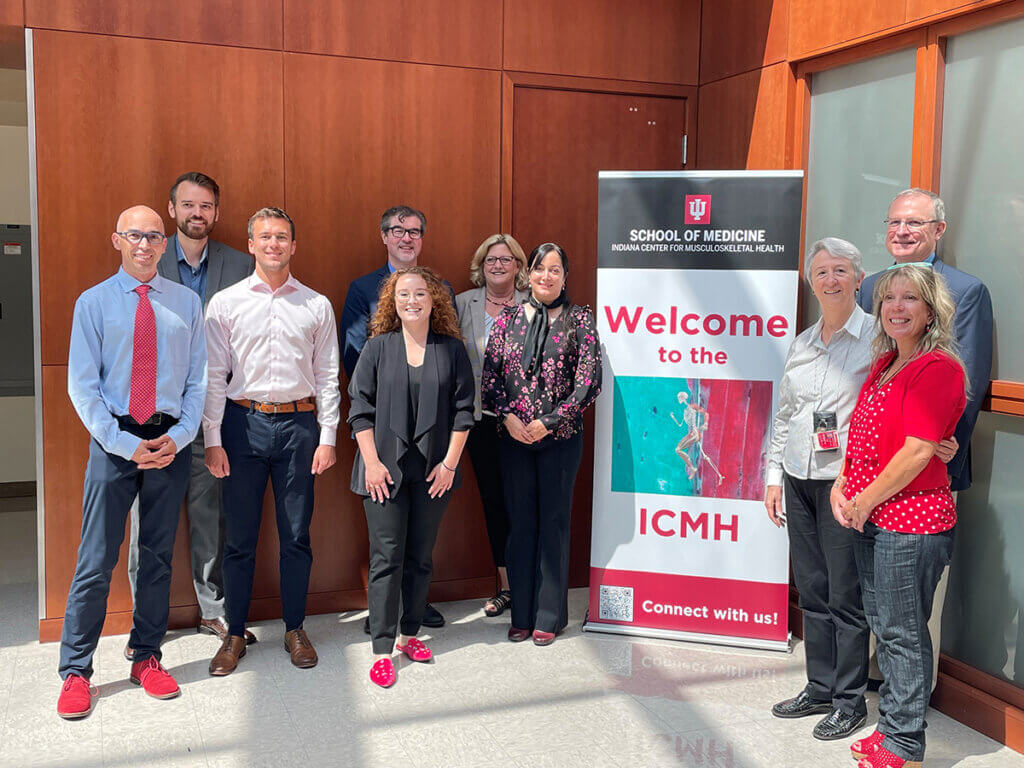Services
Kitasato Students Bring International Exchange Vibe to Purdue Veterinary Medicine
December 12, 2022
The presence of seven veterinary students from the Kitasato University School of Veterinary Medicine in Japan enriched the learning environment in Lynn Hall in August, as they participated in a longstanding program involving a collaboration between Kitasato and the Purdue University College of Veterinary Medicine.
New Veterinary Hospital Facilities Open Doors to State-of-the-Art Education and Patient Care
December 12, 2022
As morning light signals the dawn of a new day at the Purdue University College of Veterinary Medicine, the glistening new facilities that comprise the David and Bonnie Brunner Purdue Veterinary Medical Hospital Complex are ready for another busy schedule of appointments. Dedicated April 8, 2022, the hospital complex boasts advanced design and the latest equipment for treating patients, teaching students in the Doctor of Veterinary Medicine and Veterinary Nursing degree programs, and educating interns and residents.
Virtual Tour Provides Public with Opportunity to View Features of New Veterinary Hospital Facilities
December 9, 2022
Since opening in May and June, the new David and Bonnie Brunner Purdue Veterinary Medical Hospital Complex has attracted a lot of attention. To give people an opportunity to get a virtual first-hand look at the new facilities, the College of Veterinary Medicine has made available a virtual tour on the Purdue Veterinary Medicine website.
First-of-its-kind Vector-borne Disease Panel Screens for 22 Different Pathogens in a Single Test
December 6, 2022
A diagnostic panel developed by researchers in the Purdue University College of Veterinary Medicine will enable its Animal Disease Diagnostic Laboratory (ADDL) to screen for 22 different vector-borne pathogens in a single test.
Man’s Best Friend Leads the Way to Early Cancer Detection in Study Directed by Purdue Veterinary Scholar
December 2, 2022
A canine cancer scientist at the Purdue University College of Veterinary Medicine is working to take the first steps to make a serious form of cancer in dogs — one with analogues to human health — easier to detect and treat before it has become more advanced.
Purdue Large Animal Internal Medicine Specialist Assumes Leadership Role with ACVIM
November 4, 2022
Dr. Sandra Taylor, Purdue Veterinary Medicine associate professor of large animal internal medicine, has been elected as the new incoming leader for the Large Animal Internal Medicine (LAIM) specialty of the American College of Veterinary Internal Medicine (ACVIM).
Priority 4 Paws, Subaru and Local Animal Shelters Team-up for Successful Pet Adoption Event
November 4, 2022
Some four-footed visitors to the showroom at Bob Rohrman Subaru in Lafayette attracted attention during a special pet adoption event Saturday, October 29, that involved a collaboration between the dealership, Purdue Veterinary Medicine’s Priority 4 Paws program and two local animal shelters. The focus on finding homes for pets up for adoption was part of Subaru Loves Pets Month.
PVM Represented in Collaborative Effort to Grow Musculoskeletal Health Research
August 26, 2022
Some astonishing numbers were shared this week with staff from the office of U.S. Senator Mike Braun of Indiana during a meeting in Indianapolis spotlighting the need for, and accomplishments of, the Indiana Center for Musculoskeletal Health (ICMH), which includes Purdue Veterinary Medicine scholars.
Popular Indiana Derby Spotlights Caesars Entertainment Equine Specialty Hospital
July 15, 2022
Purdue’s Caesars Entertainment Equine Specialty Hospital took center stage last weekend as the distinguished Winner’s Circle sponsor for the 28th running of the Indiana Derby at Horseshoe Indianapolis in Shelbyville.
New Cohort Begins Yearlong Advanced Clinical Training
July 1, 2022
The Purdue University College of Veterinary Medicine welcomed a new class of interns to the Purdue University Veterinary Hospital in June. Ten veterinarians are beginning rotating small animal medicine and surgery internships, while two more will rotate in large animal medicine and surgery, and three additional veterinarians are beginning specialty internships focused in a specific service.

